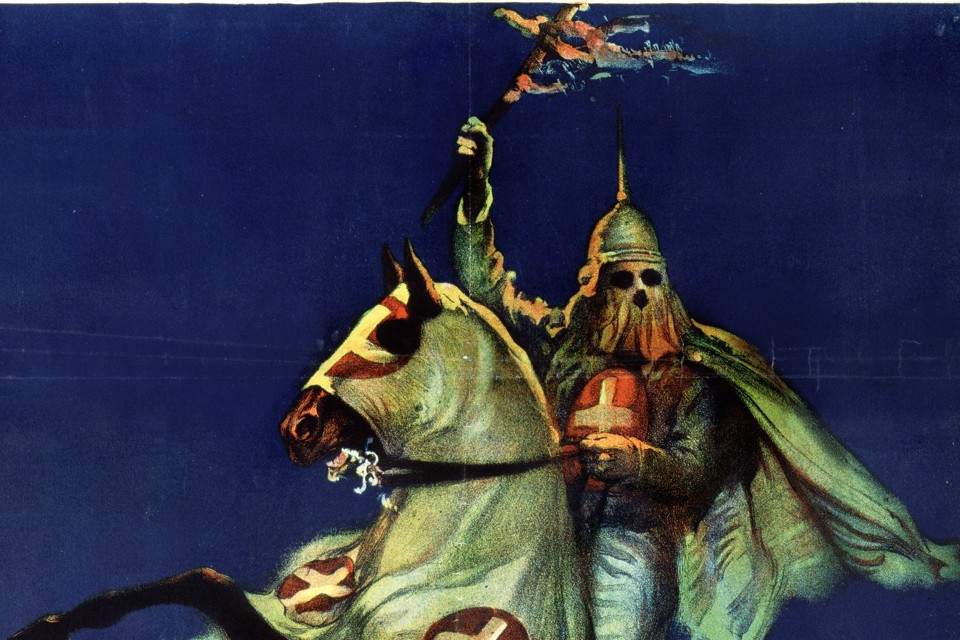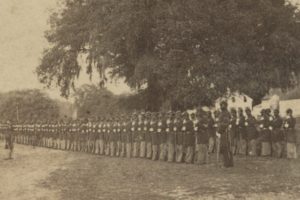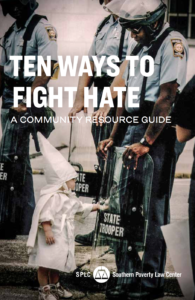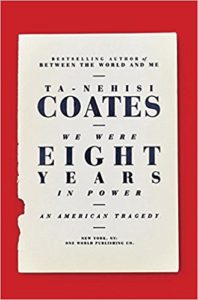Ta-Nehisi Coates
A Black president, Birthism, Tea Party, Insurrection
January 12, 2021“And then I remember Obama’s words, after the murder of George Floyd, to the effect of: “Think of what it takes for a black person to love America.” And it makes me weep.”
-Francis P Detweiler
‘It feels sometimes like we’re dragging America kicking and screaming toward its own creed.’ Baratunde Thurston explains how Black Americans show up for America and implores Republicans and others to, ‘join us because we’ve been fighting this a long time.’
Black Americans consistently show up for this nation an implores Republicans and other Americans “join us because we’ve been fighting this a long time.” [MSNBC]
-Baratunde Thurston
Link to Baratunde’s soundbite:
Recently posted podcast, Why Is This Happening, with Ta-Nehisi Coates and host Chris Hayes:
‘One day after the attack on the Capitol, Chris Hayes and author Ta-Nehisi Coates sat down to process what we witnessed as a nation and what it reveals about the fragility of American democracy.’
RELATED READING:
Twilight of the Elites: America After Meritocracy by Chris Hayes
We Were Eight Years in Power: An American Tragedy by Ta-Nehisi Coates
The Water Dancer by Ta-Nehisi Coates
‘You cannot stand for “law & order” while waving away lawlessness, or champion the pro-life cause while waving away murder. You cannot support police by the murder of police officers. You cannot support religious liberty by trashing the US Constitution.’
-Russell Moore
‘Last week’s attack on the US Capitol was like watching the death flowering of a rotten right-wing ideology. A death flowering tree might look bright and draw attention, but that very flowering signals it’s actually diseased and rotten to its core.’
‘It might take months or years, but the tree is doomed. Those rioters are the death flowers of a racist patriarchy. Their chaotic growth, bursting energy with no direction, the urgency against losing entitlements, and the omni-directional anger based on lies.’
-Eric Holthaus
“Certainly anyone who has the power to make you believe absurdities has the power to make you commit injustices.” (Certainement qui est en droit de vous rendre absurde est en droit de vous rendre injuste. [Beinecke Library/Yale]
-Voltaire. Questions sur les miracles, 1765.
MAY NEW LEADERS ARISE.
5 Books to Remedy Civil War Ignorance
November 4, 2017The Atlantic
by, Ta-Nehisi Coates
On Monday, (was this only Monday?) the retired four-star general and White House Chief of Staff John Kelly asserted that “the lack of an ability to compromise led to the Civil War.” This was an incredibly stupid thing to say. Worse, it built on a long tradition of endorsing stupidity in hopes of making Americans stupid about their own history. Stupid enjoys an unfortunate place in the highest ranks of American government these days. And while one cannot immediately affect this fact, one can choose to not hear stupid things and quietly nod along.
[…]
1) Battle Cry Of Freedom: Arguably among the greatest single-volume histories in all of American historiography, James McPherson’s synthesis of the Civil War is a stunning achievement. Brisk in pace. A big-ass book that reads like a much slimmer one. The first few hundred pages offer a catalogue of evidence, making it clear not just that the white South went to war for the right to own people, but that it warred for the right to expand the right to own people. Read this book. You will immediately be less stupid than some of the most powerful people in the West Wing.
2) Grant: Another classic in the Ron Chernow oeuvre. Again, eminently readable but thick with import. It does not shy away from Grant’s personal flaws, but shows him to be a man constantly struggling to live up to his own standard of personal and moral courage. It corrects nearly a half-century of stupidity inflicted upon America by the Dunning school of historians, which preferred a portrait of Grant as a bumbling, corrupt butcher of men. Finally, it reframes the Civil War away from the overrated Virginia campaigns and shows us that when the West was won, so was the war. Grant hits like a Mack truck of knowledge. Stupid doesn’t stand a chance.
3) Reading the Man: A Portrait of Robert E. Lee: Elizabeth Pryor’s biography of Lee, through Lee’s own words, helps part with a lot of stupid out there about Lee—chiefly that he was, somehow, “anti-slavery.” It dispenses with the boatload of stupid out there which hails the military genius of Lee while ignoring the world that all of that genius was actually trying to build.
4.) Out of the House of Bondage: A slim volume that dispenses with the notion that there was a such thing as “good,” “domestic,” or “matronly” slavery. The historian Thavolia Glymph focuses on the relationships between black enslaved women and the white women who took them as property. She picks apart the stupid idea that white mistresses were somehow less violent and less exploitative than their male peers. Glymph has no need of Scarlett O’Haras. “Used the rod” is the quote that still sticks with me. An important point here—stupid ideas about ladyhood and the soft feminine hand meant nothing when measured against the fact of a slave society. Slavery was the monster that made monsters of its masters. Compromising with it was morally bankrupt—and stupid.
5.) The Life and Times of Frederick Douglass: The final of three autobiographies written by the famed abolitionist, and my personal favorite. Epic and sweeping in scope. The chapter depicting the bounty of food on which the enslavers feasted while the enslaved nearly starved is just devastating.
The Atlantic
Jon Batiste Reinterprets ‘Battle Hymn of the Republic’ for The Atlantic
Julia Ward Howe first published her iconic poem in The Atlantic in 1862. The song quickly became an anthem of the Civil War and a touchstone of the American Idea. In that spirit, The Atlantic asked renowned jazz musician Jon Batiste to create a new arrangement of the song for the magazine’s first podcast, Radio Atlantic.
‘Grassroots movements are all we have.’
August 17, 2017“You are part of our community, and you must be part of our fight against hate.”
Use whatever skills and means you have.
Offer your print shop to make fliers. Share your musical talents at a rally. Give your employees the afternoon off to attend.
Be creative. Take action. Do your part to fight hate.
[SOUTHERN POVERTY LAW CENTER]
Full PDF:
https://www.splcenter.org/20170814/ten-ways-fight-hate-community-response-guide
“The good news is, all over the country people are fighting hate, standing up to promote tolerance and inclusion. More often than not, when hate flares up, good people rise up against it — often in greater numbers and with stronger voices.”
•••
“And I think the reason that what happened to Heather has struck a chord is because we know that what she did is achievable. She wanted to put down hate. Let’s channel that difference, that anger, into righteous action and say to yourself, ‘What can I do to make a difference?’-Heather Heyer’s mom. [Heather was murdered while protesting against hate and bigotry in Charlottesville, VA.]
•••
Author and national correspondent for The Atlantic Ta-Nehisi Coates gives his first full interview since the inauguration of the current US president. He talks with Democracy Now! host Amy Goodman about his forthcoming book, “We Were Eight Years in Power: An American Tragedy.” At first glance, the title suggests the focus will be on President Barak Obama’s presidency, the first African American president. However, it begins post civil, during Reconstruction.
“The book takes its title from a gentleman who stood up in 1895, one of the black congressmen appointed during—or who won during Reconstruction, immediately after slavery. And as South Carolina was basically cementing the disenfranchisement of African Americans, he said, you know, “Listen, we were eight years in power.” And he listed all the great things that the African Americans, really, the multiracial government, you know, a tremendous experiment in democracy that followed the Civil War, had accomplished—you know, reforming—really, forming the first public school system, you know, reforming the penal system—just a list of governmental accomplishments that they had done. And he struggled to understand why folks would then perpetrate this act of disenfranchisement, given how much South Carolina had advanced during this period.
And the great W.E.B. Du Bois pointed out that the one thing white South Carolinians feared more than bad Negro government was good Negro government. It was precisely the fact of having made all of these accomplishments, because they ran counter to the ideas of white supremacy, that gave the disenfranchisement movement and the redeemers their fuel.
And I don’t think it was very different under President Barack Obama. I think it was, in fact, you know, his modesty. It was the lack of radicalism. It was the fact that he wasn’t out, you know, firebombing or, you know, throwing up the Black Power sign or doing such that made him so scary, because I think what folks ultimately fear is Africans—is kind of the ease with which African Americans could be integrated into the system, because it assaults the very ideas of white supremacy in the first place.”
Transcript excerpt from the interview:
AMY GOODMAN: Do these grassroots movements give you hope—
TA-NEHISI COATES: Yes.
AMY GOODMAN: —right now across the country?
TA-NEHISI COATES: Yes, they’re all we have. They’re all we have. They’re all we have. I smile when I see them. I’m happy to see them. They’re all we have right now.
Full Interview: https://www.democracynow.org/2017/8/15/full_interview_ta_nehisi_coates_on
•••
An explosive and raw capture into the minds of white supremacists by VICE NEWS//8.16.17
“On Saturday, August 12th, hundreds of white nationalists, alt-righters, and neo-Nazis traveled to Charlottesville, Virginia, to participate in the “Unite the Right” rally. By Saturday evening three people were dead – one protester and two police officers – and many more injured.
“VICE News Tonight” correspondent Elle Reeve went behind the scenes with white nationalist leaders, including Christopher Cantwell, Robert Ray, David Duke, and Matthew Heimbach — as well as counterprotesters. VICE News Tonight also spoke with residents of Charlottesville, members of the Black Lives Matter movement, and the Charlottesville Police.
From the neo-Nazi protests at Emancipation Park to Cantwell’s hideaway outside Virginia, “VICE News Tonight” provides viewers with exclusive, up-close and personal access inside the unrest.
Full episode:
https://news.vice.com/story/vice-news-tonight-full-episode-charlottesville-race-and-terror
•••
Late Show Host Seth Meyers:
“You can stand for a nation, or you can stand for a hateful movement; you cannot do both.”
“And for those of us who study the history of hatred, bigotry, and the evils of Nazi Germany, the prospect of such relevance is most uncomfortable. If my work has taught me anything, it’s the importance of keeping the boundaries of one’s moral universe as wide as possible.”
-Jon Meacham
Nothing has changed. Nothing.
August 4, 2017Detroit.
The summer of love.
1967.
‘The Lost Cause Rides Again’
“HBO’s Confederate takes as its premise an ugly truth that black Americans are forced to live every day: What if the Confederacy wasn’t wholly defeated?”

Nazi Germany was also defeated. But while its surviving leadership was put on trial before the world, not one author of the Confederacy was convicted of treason. Nazi Foreign Minister Joachim von Ribbentrop was hanged at Nuremberg. Confederate General John B. Gordon became a senator. Germany has spent the decades since World War II in national penance for Nazi crimes. America spent the decades after the Civil War transforming Confederate crimes into virtues. It is illegal to fly the Nazi flag in Germany. The Confederate flag is enmeshed in the state flag of Mississippi.
The symbols point to something Confederate’s creators don’t seem to understand—the war is over for them, not for us. At this very hour, black people all across the South are still fighting the battle which they joined during Reconstruction—securing equal access to the ballot—and resisting a president whose resemblance to Ande Johnson is uncanny. Confederate is the kind of provocative thought experiment that can be engaged in when someone else’s lived reality really is fantasy to you, when your grandmother is not in danger of losing her vote, when the terrorist attack on Charleston evokes honest sympathy, but inspires no direct fear. And so we need not wait to note that Confederate’s interest in Civil War history is biased, that it is premised on a simplistic view of white Southern defeat, instead of the more complicated morass we have all around us.
[…]
African Americans do not need science-fiction, or really any fiction, to tell them that that “history is still with us.” It’s right outside our door. It’s in our politics. It’s on our networks. And Confederate is not immune. The show’s very operating premise, the fact that it roots itself in a long white tradition of imagining away emancipation, leaves one wondering how “lost” the Lost Cause really was.
[Full article in The Atlantic]
[And this. From Jimmy Fallon, Mon., Aug. 7th – – “It Ain’t Fair” from ‘Detroit’.]
http://www.rollingstone.com/music/news/watch-the-roots-incendiary-it-aint-fair-on-fallon-w496518
‘The Black Family in the Age of Incarceration’
September 14, 2015By Ta-Nehisi Coates
Wherever the law is, crime can be found.
— Aleksandr Solzhenitsyn, 1973
The Atlantic









